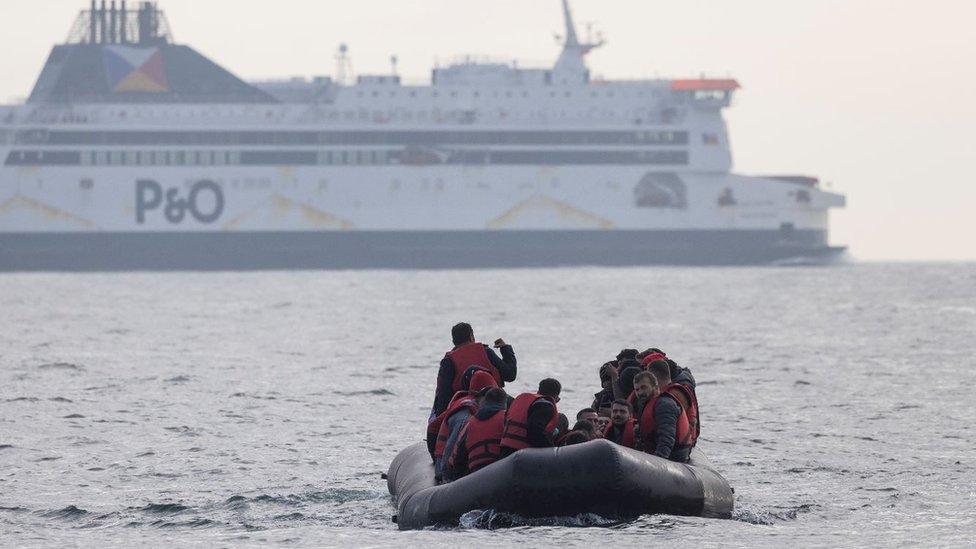Illegal Migration Bill breaches human rights obligations, MPs and peers warn
- Published
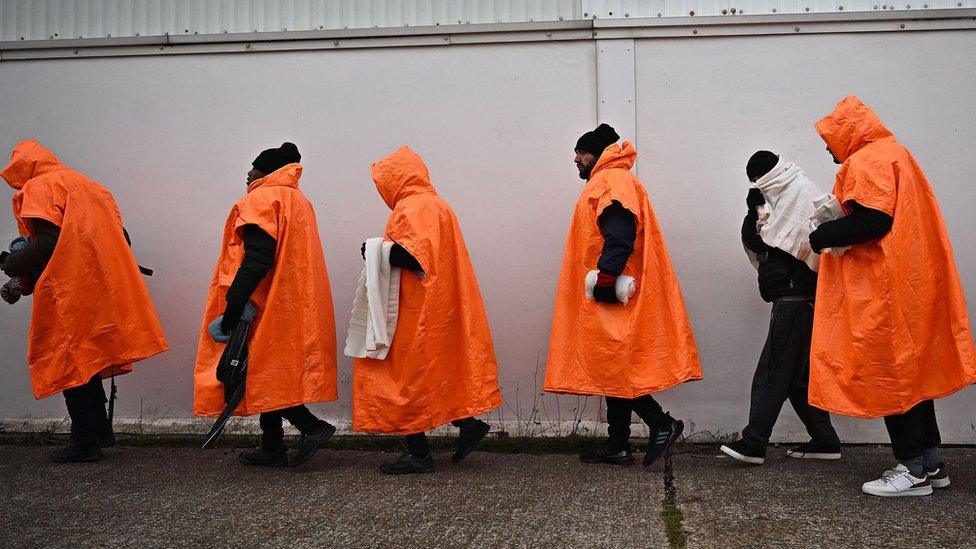
Migrants wait to be processed after arriving by small boat off the Kent coast.
The Illegal Migration Bill breaches a "number of the UK's human rights obligations", MPs and peers have said.
The bill, which aims to deport those arriving in the UK without permission, would deny the majority of refugees any access to the asylum system, the Joint Committee on Human Rights said.
Children and victims of trafficking and modern slavery would be impacted, chairwoman Joanna Cherry added.
The government said it took its international obligations seriously.
However, it has faced criticism from opposition parties and charities, who argue the bill is unworkable and could breach international law.
The legislation, intended to try to stop people crossing the English Channel in small boats, has already passed the Commons but has run into strong opposition in the House of Lords.
It would give ministers the power to remove anyone arriving in the UK illegally, and migrants would then be barred from claiming asylum.
Instead they would be detained and removed, either to Rwanda - with which the UK has an agreement - or another "safe country".
The bill would enshrine in law broad detention and search powers, and deny protections to modern slavery victims, as well as removing the right of appeals following age assessments.
Most asylum seekers arriving in the UK irregularly and indirectly after the legislation is passed would have their claim "declared inadmissible", the committee's report, Legislative Scrutiny: Illegal Migration Bill, says.
Ms Cherry, an SNP MP and a barrister, said the most vulnerable would be disproportionately affected.
"They will also be subject to detention without time limit and removal from the UK irrespective of the merits of their claims," she said.
"By treating victims of modern slavery as 'illegal migrants' subject to detention and removal, this bill would breach our legal obligations to such victims and would risk increasing trafficking of vulnerable people."
She added that most people fleeing persecution or conflict currently have "no safe and legal way of getting here".
The committee chairwoman also highlighted that Home Secretary Suella Braverman had taken the "unusual step of making a statutory declaration under the Human Rights Act that she was unable to state that the bill was compatible with the European Convention on Human Rights (ECHR)" when she introduced the bill to Parliament.
"However, she has stated elsewhere that the bill is compatible with international law. We disagree.
"Having carried out legislative scrutiny of the bill, it is overwhelmingly clear that it breaches a number of the UK's international human rights obligations including the ECHR, and risks breaching others."
The government has said the plans are central to achieving Prime Minister Rishi Sunak's pledge to stop small boat crossings - one of his five key priorities.
The Home Office also argued that excluding children and modern slavery victims from the scope of the bill could provide "incentives" to human traffickers.
A spokesperson said: "It is not compassionate to allow people to die in the Channel.
"We cannot allow a system to continue where people are incentivised to make dangerous, illegal and unnecessary journeys to the UK, which is why the Illegal Migration Bill will see people who enter the country swiftly returned home if it is safe or removed to a safe third country."
They continued, saying the legislation would send "a clear message that the exploitation of people ferried across the Channel must end", adding: "We remain committed to ensuring the bill passes through Parliament as soon as possible so we can stop the boats."
Related topics
- Published13 December 2023
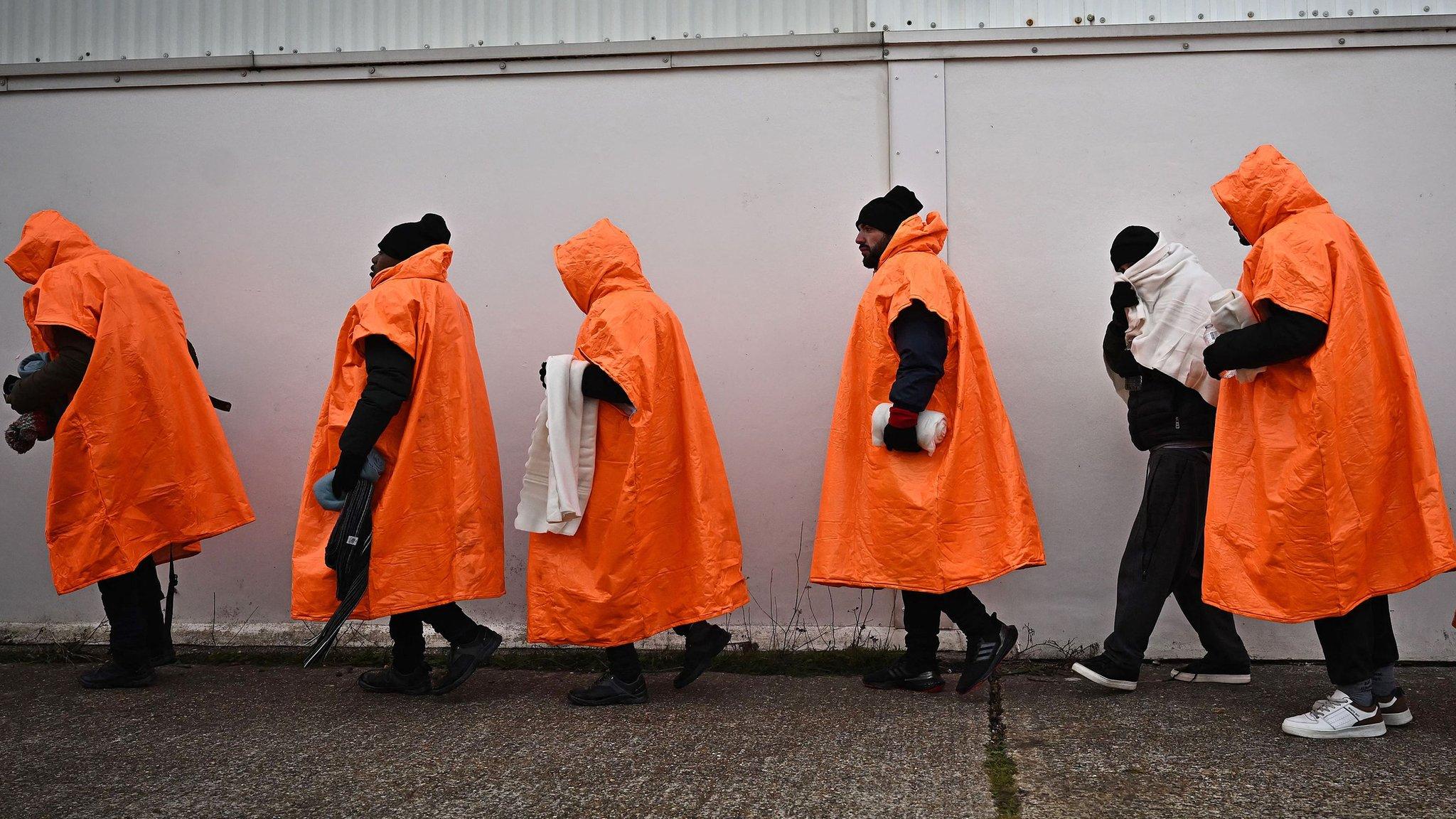
- Published9 March 2023
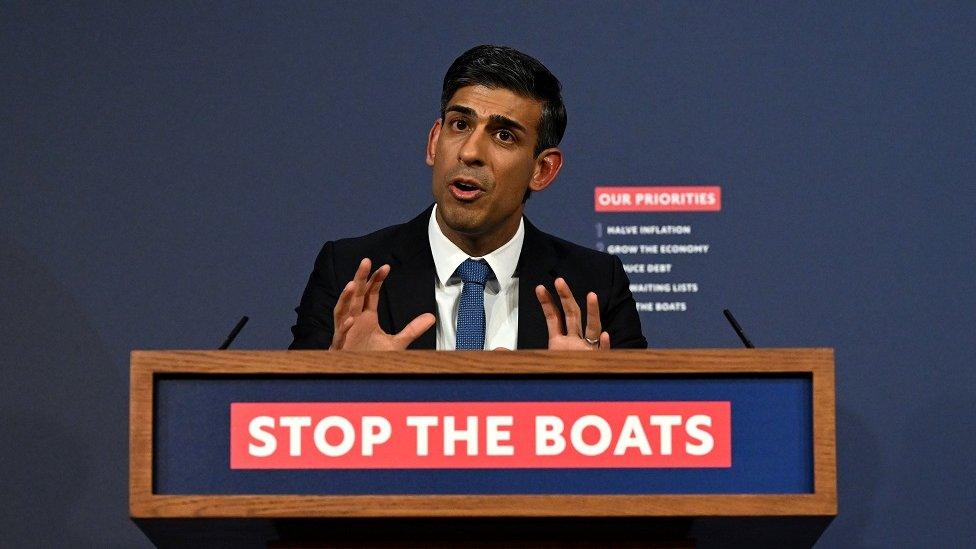
- Published8 June 2023
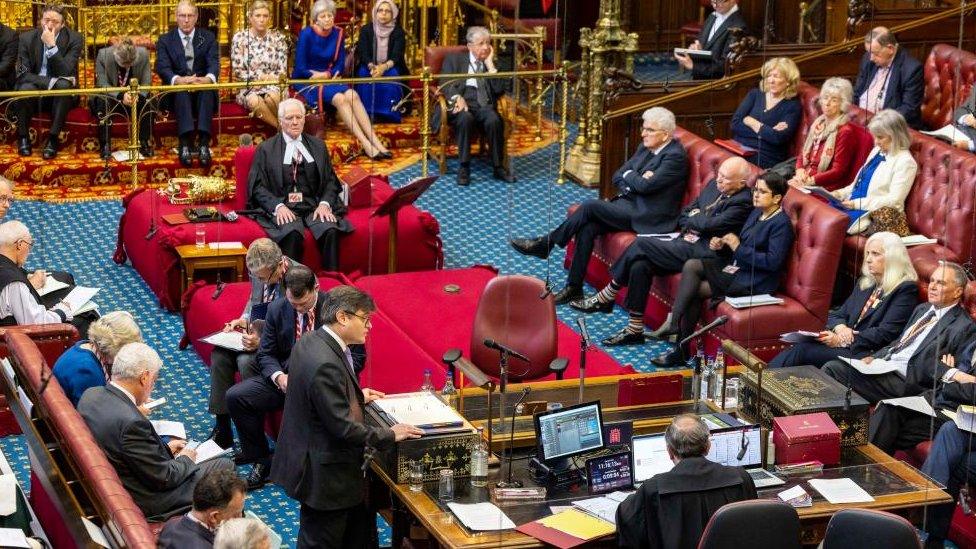
- Published27 April 2023
